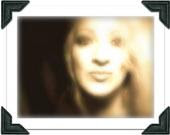RAMADI, Iraq — With a blast strong enough to blur the vision, the smoke-blackened Paladin sent yet another 100-pound bullet hissing downrange on an explosive, computer-calculated journey.
The outgoing round was just one of many that routinely rattles Camp Ramadi’s mess hall and living quarters, earning Lt. Col. Richard Miller’s 2nd Battalion, 222nd Field Artillery Regiment the reputation as one of the busiest in Iraq. The round was fired to test a new batch of propellant, but many of the shells are fired at insurgents who launch mortar and rocket attacks at Ramadi’s U.S. and Iraqi army bases.
“We want the enemy to know that if he shoots at us, we’re going to fire right back in a timely and accurate manner,” said Capt. Shawn Fuellenbach, Battery A commander.
Since the Utah National Guard unit arrived in western Iraq seven months ago in support of the 2-28 Brigade Combat Team, commanders say, the aggressive fire campaign has helped cut insurgent rocket and mortar attacks by more than one-half in Ramadi.
The unit’s guns often are called upon to fire illumination rounds that help soldiers and Marines in Ramadi distinguish friend from foe. But, just as often, the unit will target insurgents who have just launched attacks, or drop explosives on insurgent real estate as a way of preventing them from returning.
The missions mark a departure from the more traditional uses of artillery, officers said.
Built to rain havoc on vast enemy armies over sprawling battlefields, computerized howitzers in Ramadi instead are taking aim at a handful of attackers who pack mortars into their cars or trucks and fire them while on the move.
“I never would have imagined before now that all of these assets would be brought to bear against three or four guys in the back of a Toyota pickup,” Miller said.
Recently, the unit began to curtail its use of so-called “terrain denial” fire as part of an agreement with local tribal leaders and sheiks. Terrain denial fire targets areas that insurgents have used to launch attacks or hide weapons. Insurgents may or may not be in the area when the rounds land, but it discourages them from returning, officers said.
Firing into populated areas can be done only under specific criteria, and Miller said that in the unit’s seven months in Ramadi, he has not heard of one civilian death or injury caused by U.S. artillery here. However, locals are very tired of having the shells land on or near their property, and use of terrain denial fire has become an important bargaining chip in dealing with local tribal leaders.
Commanders agreed to taper off the fire if local sheiks promised to use their influence to discourage insurgent mortar attacks. Whether the terrain denial missions stop entirely depends on what happens next on the part of the sheiks and insurgents.
“We will never win this war with kinetic fire alone, with bullets and bombs,” Miller said. “We’re going to win this fight through the political process and by engaging leaders. … It may sound strange for an artillery officer to say this, but success for us is these guns staying silent.”
1/18/2006
Subscribe to:
Post Comments (Atom)







No comments:
Post a Comment